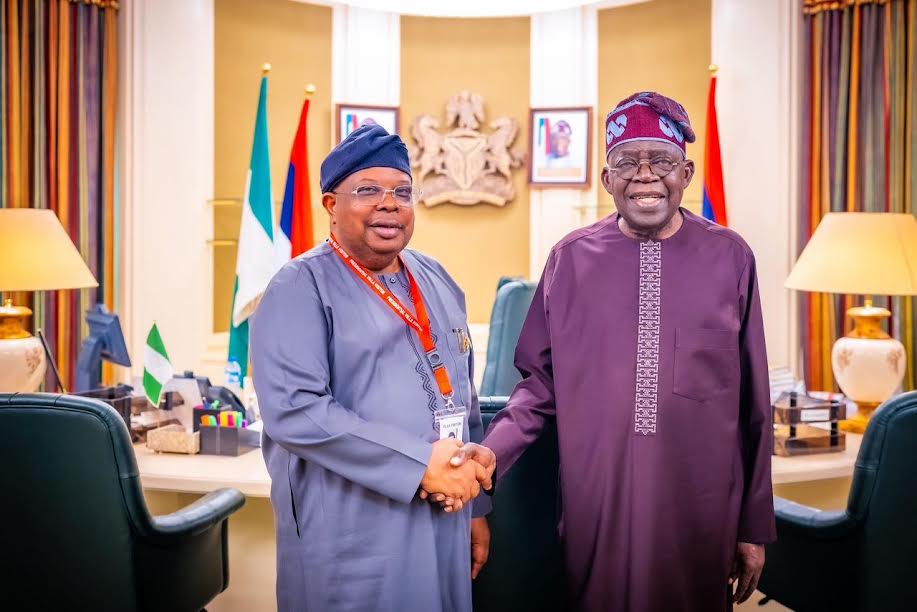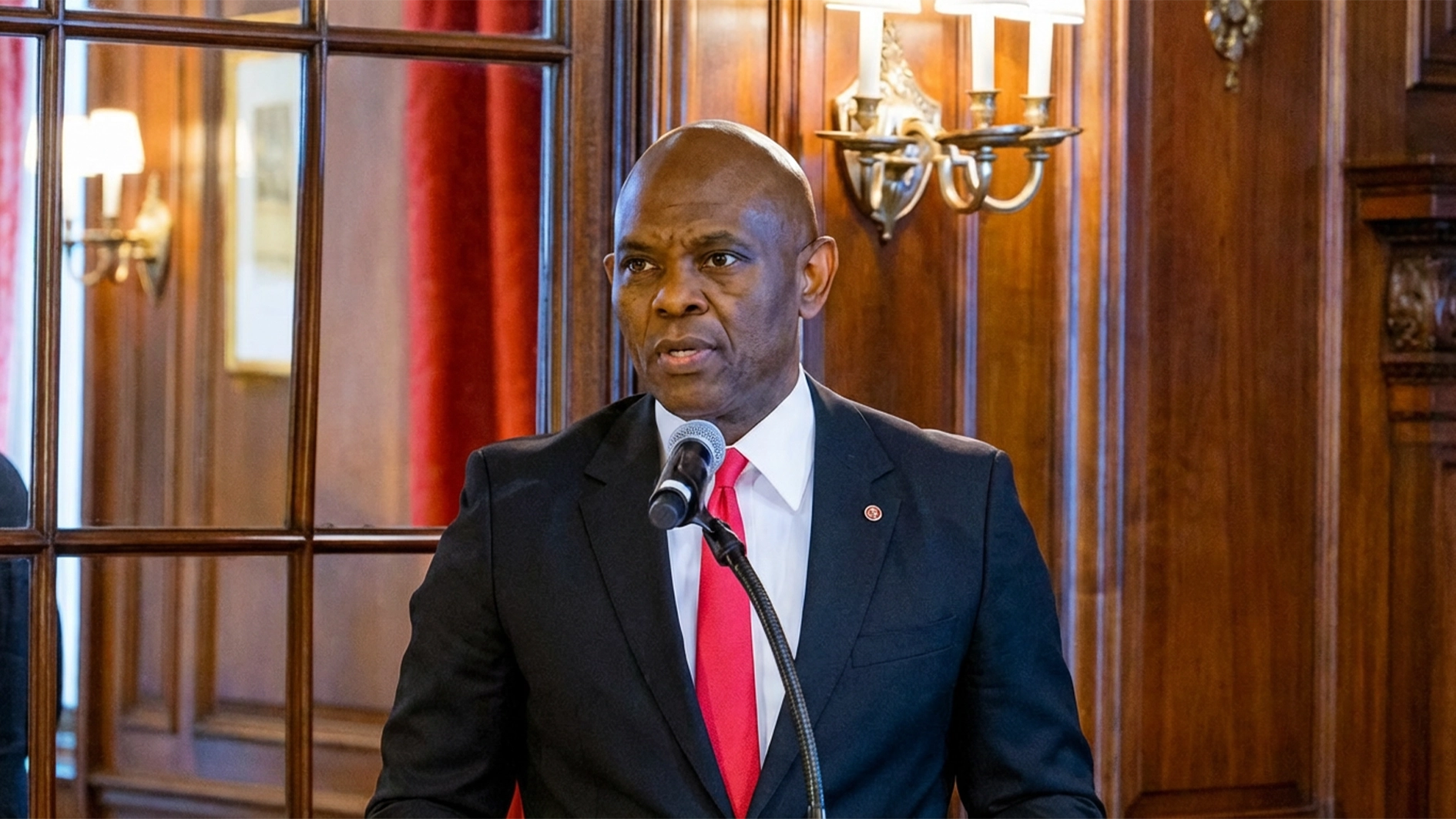. 4,000MW solar manufacturing plants to halt importation
. Four states sign $435 million renewable investments
Nigeria is leading a quiet renewable energy revolution following the failure of the national electricity grid, as another four states, yesterday, in Abuja, signed up for solar mini-grid contracts, aiming for a part of $3 billion active investment portfolio in the country’s renewable energy sub-sector.
In the next three days, at least $400 million of such contracts will be signed, President Bola Tinubu said as he declared open the Nigerian Renewable Energy Innovation Forum (NREIF).
Vice President, Kashim Shettima, as the Rural Electrification Agency (REA) and other stakeholders at the event also insisted on reversing the importation of solar panels into Nigeria, a development which will affect Chinese manufacturers, who are drastically targeting Africa, especially Nigeria, for their products.
Currently, most manufacturers and other premium customers are exiting the national grid. While the trend is a dangerous situation for the nation’s energy security, sub-nationals, including Lagos, Ogun, Kano and Bayelsa States, have joined Akwa Ibom, Ekiti, Adamawa, Delta, Katsina, Bauchi, Sokoto, Ondo, Plateau and others to position the country as Africa’s leading mining-grid destination.
A combined $435 million worth of renewable energy investment agreements under the Nigeria Solar Marketplace initiative were signed at the opening session of the event. The projects span multiple states, including Ogun State, where Renew Power Limited and Tranos will deliver 500MW and 600MW of solar capacity respectively; and Lagos State, where Auxano Solar is set to install 150MW, while Vene Photovoltaic Technologies Limited will establish a world-class solar panel recycling plant with a capacity of 2,484 tonnes per annum, alongside Greenlight Planet Sun King Nigeria Limited and Suntisolar Energy Africa Solar Limited.
In Akwa Ibom State, Tricell Solar Solutions and IRS Green Energy will develop 500MW and 600MW, respectively, while the same firms will replicate these capacities in Kano State. In Bayelsa State, J Marine Logistics Limited will lead solar deployment efforts, and in the Federal Capital Territory (FCT), PVG Solar Limited will establish a 500MW plant, supported by the Diplomatic Mission and SNV to advance Nigeria’s clean energy industrialisation.
From a mere 11MW in 2015, Nigeria’s solar deployment grew to 102MW by the end of 2022, 143MW in 2023 and 144MW in 2024, according to the International Renewable Energy Agency (IRENA).
The bulk of the solar panels in Nigeria are imported from China, which remains dominant not only in solar production but also across the broader renewable energy value chain, keeping import costs lower compared to local assembly plants.
Currently, Nigeria’s installed solar PV assembly capacity stands at about 131MW, with around 1,400MW planned capacity, bringing the future capacity to approximately 1,531MW, significantly higher than the current cumulative installed solar capacity of 385.7MW nationwide.
Oando Clean Energy alone is developing a 1,200MW solar assembly plant in partnership with the REA. The company’s President, Ademola Ogunbanjo, disclosed that the first 600MW line is expected to kick off next year.
Nigeria has been struggling to provide electricity to millions of residents and businesses. Although installed generation capacity stands at about 13,000MW, the transmission grid has a nominal capacity of 8,000MW; of this, less than 4,000MW gets to end-users. The grid collapse will prompt most businesses and premium customers, including President Bola Tinubu and major government institutions, to opt out of the grid.
Shettima said the $400 million in new investments would develop local manufacturing capacity in renewable energy technologies, including solar panels, smart meters, and battery recycling. He described the event as a turning point in Nigeria’s energy transition, bringing together more than 1,500 global and local stakeholders.
He said Nigeria is being positioned as Africa’s renewable energy manufacturing hub, driving job creation, industrial expansion, and clean growth.
Shettima noted that Nigeria’s energy transition represents a $410 billion investment opportunity by 2060, with over $23 billion needed to expand energy access.
He reaffirmed the Federal Government’s commitment to strengthening local content, de-risking private investments, and accelerating clean energy industrialisation to power inclusive national growth.
Managing Director of the Rural Electrification Agency (REA), Aliyu Abba, noted that while Nigeria remains one of Africa’s largest importers of photovoltaic (PV) panels and renewable equipment, NREIF aims to connect policy ambition with market reality, research with investment, and innovation with implementation.
Abba said Nigeria must convert its comparative advantage in solar resources into competitive industrial strength, highlighting the need to shift from energy deployment to domestication.
“With over $3 billion worth of ongoing projects, our focus is ensuring that every dollar spent generates maximum domestic value,” he said. The Minister of Power, Adebayo Adelabu, reaffirmed the government’s commitment to building a renewable energy industry anchored on the “Nigeria First Policy.” He disclosed that partnerships emerging from the forum would support the development of nearly 4 gigawatts of solar manufacturing capacity, boosting local production and green jobs.
Adelabu added that the Electricity Act 2023, tariff reforms, and new subsidy frameworks are reshaping Nigeria’s power sector, saying the focus has shifted from diagnosing challenges to execution.
At the event, development partners and diplomats reaffirmed their commitment to supporting Nigeria’s clean energy transition through investments, partnerships, and local manufacturing initiatives.
Reaffirming Germany’s long-standing energy partnership with Nigeria, the German Ambassador to Nigeria, Annett Günther Germany cited initiatives such as the Nigeria Energy Support Programme, the Presidential Power Initiative, and Get-Invest Nigeria.
He said the transition must be “green, local, inclusive, and economically empowering,” adding that domestic manufacturing and technical training were crucial to economic resilience and job creation.
The European Union (EU) also renewed its support, noting that it has invested over €200 million in Nigeria’s power sector since 2008, and an additional €100 million since 2021 to add 400 MW of renewable capacity by 2027, directly benefiting over five million people.
The EU described innovation as “the true scarcity” of the 21st century, urging Nigeria to harness its human capital to build a globally competitive clean energy sector.






